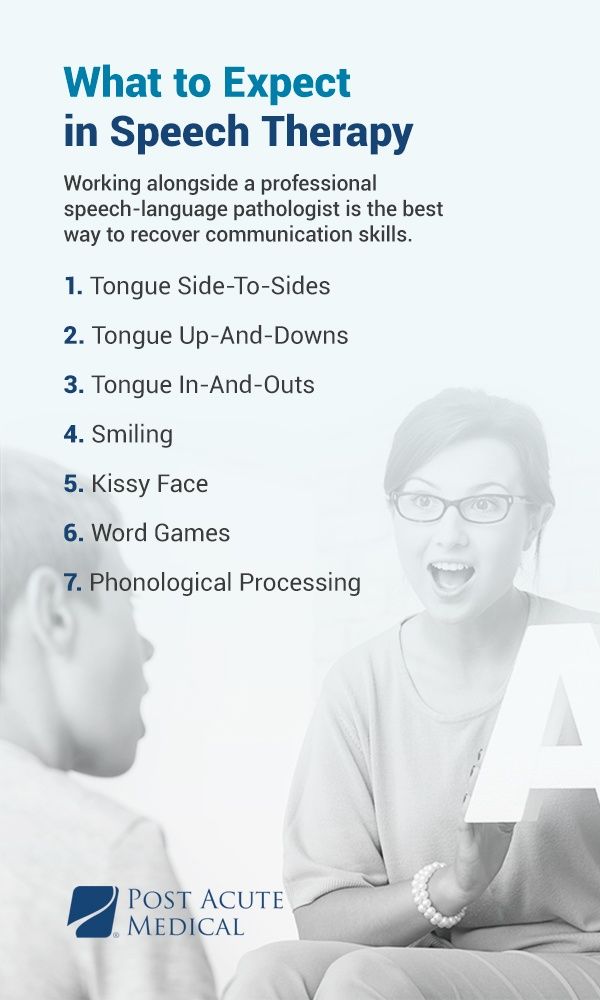Speech Therapy For Stroke Victims
If you or someone you know has experienced a stroke, you may be familiar with the challenges it can present, especially when it comes to communication. But don’t worry, there’s a solution: speech therapy for stroke victims. This specialized therapy focuses on helping individuals regain their ability to speak and communicate effectively after a stroke. In this article, we’ll explore what speech therapy entails and how it can make a difference in the lives of stroke survivors. So, let’s dive in and discover how speech therapy can help stroke victims find their voice again.
Imagine waking up one day and finding it difficult to express your thoughts and feelings through speech. It can be frustrating, isolating, and even scary. That’s why speech therapy for stroke victims is so important. With the help of a skilled speech therapist, stroke survivors can work on improving their speech, language, and overall communication skills. Through various exercises, techniques, and strategies, speech therapy aims to restore and enhance their ability to communicate effectively.
When it comes to speech therapy for stroke victims, no two treatment plans are the same. Each person’s needs and goals are unique, which is why individualized care is crucial. A speech therapist will assess the specific challenges a stroke patient is facing and develop a personalized treatment plan. This may include exercises to improve muscle control in the mouth and throat, practice in producing speech sounds correctly, and strategies for improving word retrieval and understanding. The ultimate goal is to help stroke victims regain their confidence and independence in communication.
Whether you or someone you know has been affected by a stroke, understanding the role of speech therapy can make a world of difference. By focusing on restoring speech and communication skills, this therapy helps stroke victims reconnect with the world around them. In the following sections, we’ll delve deeper into the various aspects of speech therapy for stroke victims, exploring the techniques and strategies used to maximize recovery and improve quality of life. So, let’s continue our journey to discover the transformative power of speech therapy after a stroke.

Speech Therapy for Stroke Victims: Restoring Communication Abilities
Stroke is a medical emergency that occurs when blood flow to the brain is disrupted, causing damage to brain cells. One of the most common effects of stroke is difficulty with speech and language. Speech therapy plays a crucial role in helping stroke victims regain their communication abilities and improve their quality of life. In this article, we will explore the various aspects of speech therapy for stroke victims, including its benefits, techniques, and tips for a successful recovery.
The Importance of Speech Therapy in Stroke Rehabilitation
Speech therapy is a critical component of stroke rehabilitation as it focuses on helping patients overcome communication challenges and regain their independence. Stroke can cause a range of communication difficulties, such as aphasia (difficulty speaking or understanding language), dysarthria (slurred speech), and apraxia (difficulty planning and coordinating speech movements). Speech therapists are trained professionals who work closely with stroke victims to assess their specific needs and develop individualized treatment plans.
During speech therapy sessions, stroke victims are engaged in various exercises and activities designed to improve their speech and language abilities. Therapists use a combination of techniques, including verbal cueing, repetition, and articulation exercises, to help patients regain their language skills and improve their speaking clarity. The ultimate goal of speech therapy is to help stroke victims regain their ability to communicate effectively, enhance their self-esteem, and reintegrate into social and professional settings.
The Benefits of Speech Therapy for Stroke Victims
Speech therapy offers a multitude of benefits for stroke victims, both in terms of physical and emotional recovery. Firstly, it helps patients regain their ability to communicate, which is essential for their overall well-being and quality of life. By improving speech clarity, language comprehension, and vocalization skills, speech therapy enables stroke victims to express their needs, thoughts, and emotions effectively.
Furthermore, speech therapy enhances cognitive abilities, such as memory, attention, and problem-solving skills. The exercises and techniques used in therapy sessions stimulate the brain and promote neuroplasticity, allowing the brain to rewire itself and form new connections. This leads to improved cognitive function and supports the overall recovery of stroke victims.
In addition, speech therapy provides emotional support and boosts self-confidence. Stroke can have a profound impact on a person’s self-esteem, causing frustration and isolation due to communication difficulties. Through therapy, stroke victims are empowered to overcome these challenges, embrace new communication strategies, and regain their confidence in social interactions.
Techniques Used in Speech Therapy for Stroke Victims
Speech therapists employ a variety of techniques tailored to the specific needs of stroke victims. These techniques aim to address the different communication difficulties experienced by each individual. Some of the commonly used techniques in speech therapy for stroke victims are:
- Verbal Cueing: Therapists provide verbal prompts and cues to assist stroke victims in finding the right words or improving their articulation.
- Repetition: Repeating words, phrases, and sentences helps improve speech clarity and promotes muscle memory for proper speech production.
- Articulation Exercises: Specific exercises are used to target the muscles responsible for speech production, enhancing articulation and intelligibility.
- Language Comprehension Activities: Therapists engage stroke victims in exercises that focus on understanding and following verbal instructions, improving language comprehension skills.
- Augmentative and Alternative Communication (AAC) Devices: In cases where verbal communication is severely impaired, therapists may introduce AAC devices, such as tablets or speech-generating devices, to facilitate communication.
These techniques, combined with the expertise and guidance of a speech therapist, help stroke victims gradually regain their communication abilities and work towards a successful recovery.
Tips for a Successful Speech Therapy Journey
While the role of speech therapy in stroke recovery is undeniable, it requires dedication, patience, and active participation from both the stroke victim and their support network. Here are a few tips for making the most out of the speech therapy journey:
- Consistency: Attend therapy sessions regularly and practice recommended exercises at home to maximize progress.
- Patience: Stroke recovery takes time, and progress may be slow. Be patient with yourself or your loved one and celebrate even the smallest achievements.
- Engagement: Actively participate in therapy sessions, ask questions, and communicate any concerns or difficulties to your speech therapist.
- Support System: Encourage the stroke victim to lean on their support network for emotional support and assistance throughout the therapy process.
- Positive Reinforcement: Provide positive feedback and reinforcement to boost the stroke victim’s motivation and self-confidence.
Remember, every stroke recovery journey is unique, and progress may vary from person to person. With the right guidance, support, and determination, speech therapy can significantly contribute to restoring communication abilities and improving the overall quality of life for stroke victims.
Speech Therapy Techniques for Stroke Victims: A Closer Look
Speech therapy techniques play a vital role in helping stroke victims regain their communication abilities. In this section, we will explore some of the key techniques and approaches used in speech therapy for stroke victims and delve deeper into their benefits and applications.
1. Verbal Cueing
Verbal cueing is a technique commonly used by speech therapists to assist stroke victims in finding the right words or improving their articulation. This technique involves providing verbal prompts and cues to stimulate and guide the individual during conversation or speech exercises.
During therapy sessions, the speech therapist may use cues such as asking the patient to think of a word that rhymes with a given word or providing a key word or phrase to initiate a response. By using verbal cues, stroke victims can access their language and improve their ability to express themselves effectively.
Verbal cueing helps stroke victims overcome language retrieval difficulties and enhances their communication abilities. It promotes word-finding skills, encourages engagement in conversation, and increases confidence in speaking.
Benefits of Verbal Cueing in Speech Therapy
– Provides support in finding the right words
– Improves word-finding skills
– Boosts confidence in speaking
– Enhances engagement in conversation
– Facilitates communication during therapy sessions
Overall, verbal cueing is a valuable technique that empowers stroke victims to overcome language challenges and communicate more effectively.
2. Repetition
Repetition is a fundamental technique used in speech therapy for stroke victims. It involves repeating words, phrases, and sentences to improve speech clarity and promote muscle memory for proper speech production.
Through repetitive practice, stroke victims can strengthen their articulatory muscles, enhance their speech production, and work towards clear and intelligible speech. This technique also helps in the reestablishment of neural connections in the brain, supporting the recovery of communication abilities.
Therapists may engage stroke victims in repetitive exercises, such as repeating a specific word or phrase multiple times, practicing tongue twisters, or reciting common sentences. The goal is to develop muscle memory and improve speech fluency and intelligibility.
Benefits of Repetition in Speech Therapy
– Strengthens articulatory muscles
– Improves speech clarity and intelligibility
– Enhances muscle memory for proper speech production
– Promotes speech fluency
Overall, repetition is a powerful technique that aids stroke victims in regaining their ability to speak with clarity and confidence.
Key Takeaways: Speech Therapy for Stroke Victims
- Speech therapy can help stroke victims regain their ability to communicate effectively.
- The therapy focuses on improving speech, language, and swallowing skills.
- Speech therapists use various techniques such as exercises, breathing exercises, and vocalization exercises.
- Regular practice and consistency are key for successful speech therapy outcomes.
- Speech therapy can greatly improve the quality of life for stroke victims.
Frequently Asked Questions
In this section, you will find answers to common questions about speech therapy for stroke victims.
1. How can speech therapy help stroke victims?
Speech therapy is crucial for stroke victims as it helps restore or improve their communication skills. Stroke can affect the brain’s ability to control speech and language functions, resulting in difficulties in articulation, understanding, and expression. Speech therapists work closely with patients to develop strategies to overcome these challenges. They use exercises, techniques, and assistive devices to enhance speech production, vocabulary, comprehension, and overall communication. Through tailored therapy plans, stroke victims can regain confidence in their ability to communicate effectively.
Furthermore, speech therapy also focuses on swallowing disorders, known as dysphagia, which commonly occurs after a stroke. Dysphagia can cause difficulty in swallowing, leading to choking hazards and malnutrition. Speech therapists assist stroke victims in improving their swallowing function, ensuring they can safely consume food and fluids.
2. How long does speech therapy typically last for stroke victims?
The duration of speech therapy for stroke victims varies depending on individual factors such as the severity of the stroke, the extent of speech and language impairment, and the patient’s overall progress. In general, the length of therapy can range from a few weeks to several months. It is important to note that progress is not always linear, and it may take time to see significant improvements. Consistent and regular therapy sessions, combined with continued practice and support outside of therapy, are key to achieving positive outcomes.
Speech therapy is a collaborative process, involving the stroke victim, their loved ones, and the speech therapist. Together, they set goals and work towards them within a realistic timeframe. The therapy plan may be modified as the patient progresses, ensuring that the treatment is tailored to their specific needs.
3. Can speech therapy be effective for stroke victims with severe impairments?
Yes, speech therapy can be beneficial for stroke victims with severe impairments. While the extent of improvement may vary among individuals, therapy aims to make communication as functional as possible. Speech therapists employ various techniques and alternative methods of communication, such as augmentative and alternative communication (AAC) devices, to support stroke victims with severe impairments. AAC devices can include speech-generating devices, picture boards, or electronic tablets to assist with communication.
It’s important to remember that progress can be made at any stage, regardless of the severity of the stroke. The key is to work closely with a speech therapist who specializes in stroke rehabilitation to develop a personalized therapy plan that addresses the specific challenges and goals of the individual.
4. Are there any exercises or activities that stroke victims can practice at home?
Absolutely! Speech therapy extends beyond the therapy sessions, and stroke victims can engage in exercises and activities at home to further enhance their speech and language skills. The speech therapist will provide a home program tailored to the specific needs of the individual. These exercises may include daily practice of articulation, repeating specific words or phrases, reading aloud, engaging in conversation, and utilizing speech therapy apps or online resources.
It’s essential to follow the guidance of the speech therapist and maintain consistency in practicing these exercises. Regular practice at home, in addition to attending therapy sessions, can accelerate the progress and improve communication abilities over time.
5. Can speech therapy help with cognitive skills in addition to speech and language?
Yes, speech therapy can help improve cognitive skills in addition to addressing speech and language impairments in stroke victims. Stroke can impact various cognitive domains such as attention, memory, problem-solving, and executive functions. Speech therapists can incorporate cognitive-communication activities within the therapy sessions to target and enhance these skills.
By engaging in cognitive-communication exercises, stroke victims can improve their ability to focus, organize thoughts, follow directions, recall information, and effectively participate in conversations. Speech therapy plays a vital role in not only restoring speech and language abilities but also in enhancing overall cognitive functioning and quality of life for stroke survivors.
Summary:
Speech therapy can help stroke victims regain their ability to communicate and improve their quality of life. Therapists use exercises and techniques to strengthen the muscles used in speech, as well as strategies to compensate for any permanent damage. Regular therapy sessions and practice at home can lead to significant improvements in speech and language skills.
Recovering from a stroke is a journey, but with the right support and therapy, individuals who have difficulty speaking can make progress. Speech therapy provides hope and helps stroke survivors regain their voice and reconnect with others. Don’t give up; with patience and perseverance, communication can be restored.



